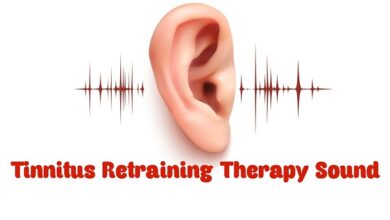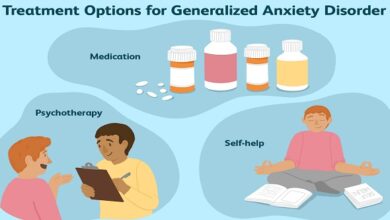Best Supplements for Seniors in 2025 – Boost Energy, Memory & Overall Health

Best Supplements for Seniors in 2025 – Boost Energy, Memory & Overall Health
As we age, nutritional needs shift and the risk of deficiencies increases. Aging adults often notice decreased energy, memory concerns, weakened bones, and slower recovery. In 2025, best supplements for seniors can help counter these changes—supporting vitality, focus, immunity, and longevity.
Whether you’re looking for the best multivitamin for men over 50, best brain supplements for seniors, or targeted nutrients like vitamin B12, this guide offers a complete update for seniors aiming to thrive in the new decade.
Understanding Nutritional Deficiencies in Older Adults
After age 50, many seniors absorb fewer nutrients—even with a balanced diet. Common gaps include:
- Vitamin B12, linked to energy and nerve health
- Vitamin D, essential for bone strength, immunity, and mood
- Calcium & magnesium, for bones and muscle function
- Omega‑3 fatty acids, for heart and cognitive health
- Zinc, selenium, and other minerals for brain and immune support
Studies emphasize that deficiencies in these essential nutrients are common in older adults and may require supplementation when diet alone isn’t enough.
Why Seniors Benefit from Supplements After Age 50
Quality supplements tailored for aging adults can help by:
- Combating fatigue and improving energy levels (e.g., vitamin B12, CoQ10, iron)
- Supporting cognitive health and memory via Omega‑3s, magnesium, and brain nutrients
- Strengthening bones and immunity with D3, calcium, and zinc
- Reducing inflammation/joint discomfort using turmeric, omega‑3s, glucosamine
- Supporting heart health, mood, and sleep through adaptogens and magnesium glycinate
Expert reviews from Prevention and EatingWell note that combining nutrients such as omega‑3s, various vitamins (D, E, B-complex), and adaptogens supports longevity and mental health in aging adults EatingWell.
How to Choose the Best Supplements for Seniors
When evaluating supplements:
- Prefer third-party tested brands (e.g. USP, NSF certified)
- Choose bioavailable forms (e.g. methylcobalamin, D3 with K2, magnesium glycinate)
- Watch dosage and purity, avoiding unnecessary or excessive nutrients
- Review drug interactions—especially for medication users
- Favor senior-formulated multivitamins with tailored dosages and lower iron unless indicated
The U.S. Preventive Services Task Force generally advises caution with routine multivitamins but recognizes exceptions for seniors with poor appetite or specific needs.
Best Multivitamin for Men and Women Over 50
- For Men Over 50: Look for formulas with vitamin B12, vitamin D3 (1,000–2,000 IU), zinc, magnesium, and lower iron. It should support heart health and prostate function.
- For Women Over 50: Choose blends tailored to bone density, hormonal changes, and eye health—emphasizing calcium citrate, vitamin D3 + K2, and antioxidants (vitamins A, C, E).
These formulas are often available from reputable brands offering senior-focused nutrients and joint support.
Essential Vitamins for Seniors Overall
According to clinical sources like BrightStar Care and senior health expert recommendations, central nutrients include:
- Vitamin D for bone, immunity, and mood support
- Vitamin B12, especially methylcobalamin for energy and nerve health
- Magnesium for sleep, muscle, and stress regulation
- Omega‑3 fatty acids (EPA/DHA) for heart, brain, and inflammation control
- Calcium for maintaining bone strength .
Best Vitamin B12 Supplement for Seniors
Vitamin B12 becomes harder to absorb with age. Methylcobalamin is the best form for seniors, as it’s active and better retained. Some require injections, especially if they have pernicious anemia or absorption issues. Seniors should test serum B12 levels and follow physician guidanc.
Best Brain & Memory Supplements for Seniors
To support brain function and memory:
- Omega‑3 (DHA/EPA) may modestly protect against age-linked cognitive decline.
- Magnesium L-threonate shows emerging benefits for memory and learning by entering the brain more effectively.
- Phosphatidylserine (PS) supports cellular membranes, though regulatory bodies note limited robust evidence.
- BodyBio PC (phosphatidylcholine supplement) is featured by therapeutic experts for memory support in seniors.
Best Energy & Anti-Fatigue Supplements
- Coenzyme Q10 (CoQ10) supports cellular energy and heart health
- Rhodiola rosea, ashwagandha, beef liver extracts, or creatine may boost energy and resilience in seniors.
- Vitamin B12 in seniors with deficiency improves fatigue and mental clarity
Ensure supplementation is tailored—otherwise, unneeded doses offer no added energy and may cause discomfort.
Bone, Heart & Immune Health Supplements
- Bone-support combo: vitamin D3 + K2, calcium citrate, magnesium
- Heart-support: Omega‑3s and CoQ10 (with magnesium)
- Immune support: Zinc, vitamin C, probiotics, elderberry — especially during seasonal risk periods
But note: recent USPSTF guidance advises against routine vitamin D + calcium strictly for fall/fracture prevention in older adults unless medically required.
Joint Health & Anti-Inflammatory Support
Supplements that seniors often use to ease joint pain include:
- Turmeric (curcumin)
- Glucosamine + MSM
- Boswellia serrata
- Omega‑3s for systemic inflammation
These may support comfort and mobility when combined with meal timing and physician guidance.
Additional Key Supplements for Seniors
- Spermidine—emerging as an anti-aging nutrient that supports autophagy and metabolic health in seniors.
- Urolithin A for mitochondrial support and muscle function
- Curcumin, resveratrol, EGCG, alpha-lipoic acid, collagen peptides, vitamin E—these may aid skin, vascular, and cellular health—though more research is needed.
Safety and Potential Interactions
Though many supplements are safe, seniors should be cautious:
- Vitamin D or calcium may interact with certain medications and are not universally recommended for fall prevention without other indication.
- High doses of some vitamins (e.g., E, magnesium forms) can cause nausea, low blood pressure, or digestion issues
- Adaptogens and herbal supplements may interact—consult with a healthcare provider before adding new supplements
Best Supplement Formats
- Capsules/Tablets: Accurate dosing and long shelf life
- Gummies: More palatable but often higher in sugar and lower in nutrient concentration
- Powders/Liquids: Useful for complex blends or those with swallowing issues—just ensure dosing matches needs
Choose a format that supports consistent use, which is key to benefit.
When Seniors Should Test Before Supplementing
Consult healthcare providers and test for:
- Serum vitamin D, B12, and other key markers
- Bone density tests, cholesterol, and inflammation markers if relevant
- Review medications (e.g., statins, anticoagulants, PPIs) to avoid interactions
Personalized advice ensures proper dosing and prevents contraindications.
Conclusion: Build a Personalized Supplement Plan for 2025
In 2025, best supplements for seniors are those tailored to individual needs—whether that’s improving memory, energy levels, immunity, bone health, or mood. Foundational nutrients like vitamin D3, B12, omega‑3s, magnesium, and calcium remain core. Emerging additions such as magnesium L‑threonate, spermidine, and phytochemicals offer promising benefits when used wisely.
Combining supplements with a balanced diet, movement, careful medical oversight, and regular testing forms the safest, most effective approach to aging healthfully and proactively.
FAQs
What is the top multivitamin for seniors?
Choose senior-targeted formulas rich in vitamin D3, B12 (methylcobalamin), magnesium, calcium citrate, and omega‑3s with minimal iron (unless indicated).
Which supplements aid memory and cognition in older adults?
Omega‑3s, magnesium L‑threonate, phosphatidylcholine/serine, lion’s mane, and curcumin have evidence—though long-term results vary depending on base health.
Are supplements safe for seniors with medications?
Most are safe, but consult a clinician—especially before combining adaptogens, herbal extracts, or high-dose formulations with prescription meds.
How should seniors take supplements for best absorption?
Take fat-soluble vitamins (A, D, E, K) with meals; split magnesium doses; select bioavailable forms; store per label instructions.
Can supplements boost energy in seniors?
Yes, especially when correcting proven deficiencies (vitamin B12, CoQ10, magnesium, iron after blood testing). For others, adaptogens like Rhodiola or moderate creatine may help.
Read More About: Symptoms of Vitamin B12 Deficiency: 14 Warning Signs You Shouldn’t Ignore



